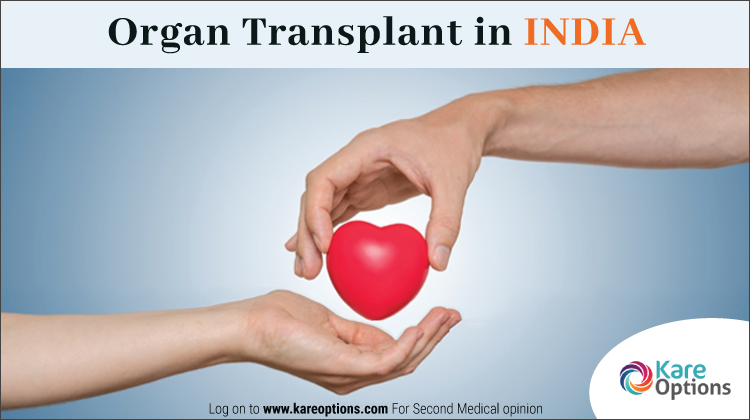Organ transplant is the last resort for patients whose organs start failing and is a choice made by doctors in critical cases. Organ failure may result from chronic diseases like diabetes or genetic abnormalities like polycystic kidney disease and congenital heart defects. These conditions cannot be treated by medicines and therapy, and when left untreated, may result in the death of the patient. Organ failure may also occur due to a physical injury.
The process of organ transplantation involves extracting the organs from a healthy donor or a deceased person and placing the donated organ into the recipient. Organs that can be grafted include the heart, kidney, lungs, liver, and pancreas. Brain transplant is still a subject of research and could be a significant breakthrough in medicine. Although liver transplant in India is undertaken quite frequently, the most commonly transplanted organ is the kidney.
How is Organ Transplant Performed
Organ transplant surgery is a complex procedure and involves the proper handling of organs of the patient as well as the donor who requires the transplant. The primary task is to find a suitable donor with a compatible blood group. A standard criterion is specified that a donor must satisfy, such as being healthy and free from any severe diseases, so that the chances of organ rejection are reduced. Organ transplant requires a team of highly experienced and skilled doctors and caregivers. The procedure does not end after the transplant. The patient must be monitored regularly after the transplant to ensure there is no infection and other complications such as organ rejection and bleeding. Organ transplant is a life-saving procedure that can increase the life span of patients. Organs can be donated by a living individual or a deceased person.
India at the Forefront of Organ Transplantation
Indian doctors and hospitals have been pioneers in the field of organ transplantation. India has proper infrastructure and the latest medical technology, and the Indian healthcare system is one of the best in the world. India scores better than other tourism destinations due to the low cost of transplant and follow-up treatment involved:
- The typical liver transplant cost in India ranges between 20 and 25 lakhs
- Kidney transplant cost is between 5 and 6 lakhs in India
- Similar to liver transplant, lung transplant cost in India is between 20 and 25 lakhs
- The cost of bone marrow transplant in India is between 15 and 40 lakhs
The National Organ Transplant Programme was launched by the Directorate General of Health Services. As a subsidiary of the Indian Government, it aims to promote organ donation by deceased individuals, providing necessary training to healthcare workers, and organizing activities according to the law. The organization also attempts to safeguard the protection of vulnerable individuals against organ trafficking. Another regulatory body in India is the National Organ and Tissue Transplant Organization, generally known as NOTTO.
In 1994 an act called the Transplantation of Human Organ Act was passed, that regulates organ donation and transplantation in India. According to this act, brain death is accepted as a form of death. It criminalizes the sale of organs and makes such an act a punishable offense. With steps adopted by the Government of India in the protection of both organ donors and the recipient, India is undoubtedly leading the way in organ donation.
Government support and the availability of donors have created a favorable environment in India for successful organ transplantation. Patients worldwide come to India for organ transplants as the cost of treatment is comparatively lower than in first-world countries. Low costs of treatment, when combined with the high availability of organs, and fewer waiting times, enable critical patients to obtain prompt treatment, making India their preferred organ transplant destination.
Disclaimer:
“KareOptions does not have any intention to provide specific medical advice, but rather to provide its users and/ or the general public with information to better understand their health. All content (including text, graphics, images, information, etc.) provided herein is for general informational purposes only and is not a substitute for professional medical advice, care, diagnosis, or treatment. KareOptions makes no representation and assumes no responsibility/ liability for the accuracy of the information, advice, diagnosis, treatment provided herein or on its website. NEVER DISREGARD PROFESSIONAL MEDICAL ADVICE OR DELAY IN SEEKING TREATMENT BECAUSE OF SOMETHING YOU HAVE READ IT HERE OR ACCESSED THROUGH THE KAREOPTIONS WEBSITE.


